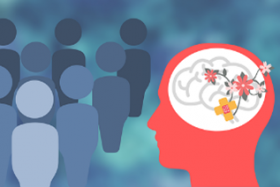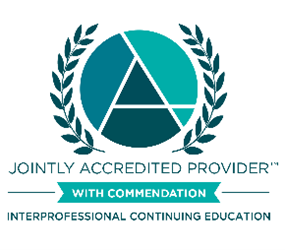
The Impact of Trauma on the Body, Brain and Behavior
Do you feel confident in your ability to recognize and respond to trauma experienced by your students? Are you aware of the tendency to misinterpret trauma-related behaviors in Black, Indigenous, People of Color (BIPOC) students?
The collective trauma experienced by communities during the pandemic is contributing to the current rise in mental health concerns. The burden of this trauma has not been distributed equally across populations thus it is vital for School Health Professionals (SHPs) to understand what behaviors related to trauma may appear in school and how to respond appropriately. SHPs also need to understand the detrimental effects of misinterpreting trauma-related behavior exhibited by BIPOC and other marginalized populations to ensure that the mental health support they provide is equitable and of high quality for all students.
Target Audience
School Nurses, School Psychologists, Adjustment Counselors, anyone interested in School Mental Health
Learning Objectives
After completing this training, learners will be able to:
- Describe one neurological effect of trauma.
- Identify two ways trauma presents in behavior in children and adults.
- Summarize how behaviors that result from traumatic experiences may be misinterpreted, particularly if the person exhibiting behavior is a Black, Indigenous, Person of color (BIPOC).
- Apply learned strategies for regulating responses when working with a student or staff member who is in distress.
This program is broken into small videos with check-in questions along the way
| Topic | Estimated Time to Complete |
|---|---|
| Welcome, Introductions, Scenario Presentation, levels of stress, types of Trauma | 11 mins |
| The Neurophysiological Impact of Toxic Stress and Trauma | 14 mins |
| Contextualizing the Impacts of Toxic Stress and Trauma | 14 mins |
| Trauma and Equity | 7 mins |
| Strategies and Tools for Response | 12 mins |
| Scenario | 9 mins |
| Co-Regulation and Wrap-Up | 9 mins |
Boston University Chobanian & Avedisian School of Medicine asks all individuals involved in the development and presentation of Accredited Continuing Education activities to disclose all financial relationships with ineligible companies. This information is disclosed to all activity participants prior to the start of the educational activity. Boston University Chobanian & Avedisian School of Medicine has procedures to mitigate all relevant financial relationships with ineligible companies. In addition, faculty members are asked to disclose when any unapproved use of pharmaceuticals and devices is being discussed.
In accordance with the Standards for Integrity and Independence in Accredited Continuing Education, all relevant financial relationships with ineligible companies that faculty, planners, authors, and anyone who may be in control of content have been mitigated.
None of the speakers or planners or anyone in control of content for this accredited continuing educational activity have any relevant financial relationships since the content does not relate to any products or services of an ACCME-defined ineligible company; therefore, there are no relevant financial relationships to disclose or mitigate.

Carol A. Dolan, Ph.D.
Speaker
Clinical Associate Professor of Community Health Sciences at Boston University School of Public Health where she focuses on social-contextual determinants of health and mental health and serves as Director of the MPH Certificate in Mental Health and Substance Use.
Carol teaches courses on Individual, Community, and Population Health, Stress, Mental Health, and Psychological Trauma has earned several teaching awards, and enjoys mentoring MPH students who have an interest in public health and mental health. Prior to BU, Carol taught undergraduate, graduate, and online courses in psychology and research to military members and their families stationed in Asia and Europe.
Her research focuses on stress, coping, and health in various contexts and populations, including cardiovascular health, deployed military members, and minority women. Carol has counseling experience with military members, with a focus on how deployments and trauma affect military
Erin Sivak, MSN, BSN, RN
SHIELD Assistant Director
Nurse Planner
Erin joined BU SHIELD in 2021 and supports the development, delivery, and evaluation of SHIELD programming for school nurses. Erin earned her Bachelor of Nursing Science from Massachusetts College of Pharmacy and Health Sciences and a Masters in Nursing Administration at Northeastern University. She has experience as a school nurse, nursing director for a community provider agency serving adults with developmental disabilities and brain injury, and as a staff nurse on an urgent care unit in a community health center.

Beverly Heinze-Lacey, MPH, BSN, RN
Director, BU SHIELD
Course Advisor
CME Program Manager: Lesly Zapata, MPH
 In support of improving patient care, Boston University Chobanian & Avedisian School of Medicine is jointly accredited by the Accreditation Council for Continuing Medical Education (ACCME), the Accreditation Council for Pharmacy Education (ACPE), and the American Nurses Credentialing Center (ANCC), to provide continuing education for the healthcare team.
In support of improving patient care, Boston University Chobanian & Avedisian School of Medicine is jointly accredited by the Accreditation Council for Continuing Medical Education (ACCME), the Accreditation Council for Pharmacy Education (ACPE), and the American Nurses Credentialing Center (ANCC), to provide continuing education for the healthcare team.
Nursing Contact Hours: 1.75 contact hours, of which 0 are eligible for pharmacology credit.
SHIELD is a DESE-approved provider for PDPs. PDP certificates are issued for programs/series lasting 10 or more hours on a topic. CNE certificates are also issued for eligible courses. Learners may use CNE certificates toward PDPs.
| Course Release Date: | 12/01/2021 |
| Material Reviewed: | 12/01/2021, 11/17/2022,11/16/2023, 11/13/2024 |
| Course Expiration Date: | 11/12/2025 |
Available Credit
- 1.75 ANCC
- 1.75 Participation
Price
Disclaimer
THIS CONTINUING EDUCATION PROGRAM IS INTENDED SOLELY FOR EDUCATIONAL PURPOSES FOR QUALIFIED HEALTH CARE PROFESSIONALS. IN NO EVENT SHALL BOSTON UNIVERSITY BE LIABLE FOR ANY DECISION MADE OR ACTION TAKEN IN RELIANCE ON THE INFORMATION CONTAINED IN THE PROGRAM. IN NO EVENT SHOULD THE INFORMATION CONTAINED IN THE PROGRAM BE USED AS A SUBSTITUTE FOR PROFESSIONAL CARE. NO PHYSICIAN-PATIENT RELATIONSHIP IS BEING ESTABLISHED. IN NO EVENT SHOULD INFORMATION IN THE MATERIALS REGARDING LAWS, REGULATIONS, OR LEGAL LIABILITY BE CONSIDERED LEGAL ADVICE OR USED AS A SUBSTITUTE FOR CONSULTING WITH AN ATTORNEY.
Copyright
This material is copyrighted by the Massachusetts Department of Public Health (MDPH). MDPH grants permission for use of these materials for non-commercial educational use only, provided credit is given to the MDPH. Modification of content is permitted only with prior approval of the MDPH School Health Unit.

 Facebook
Facebook X
X LinkedIn
LinkedIn Forward
Forward